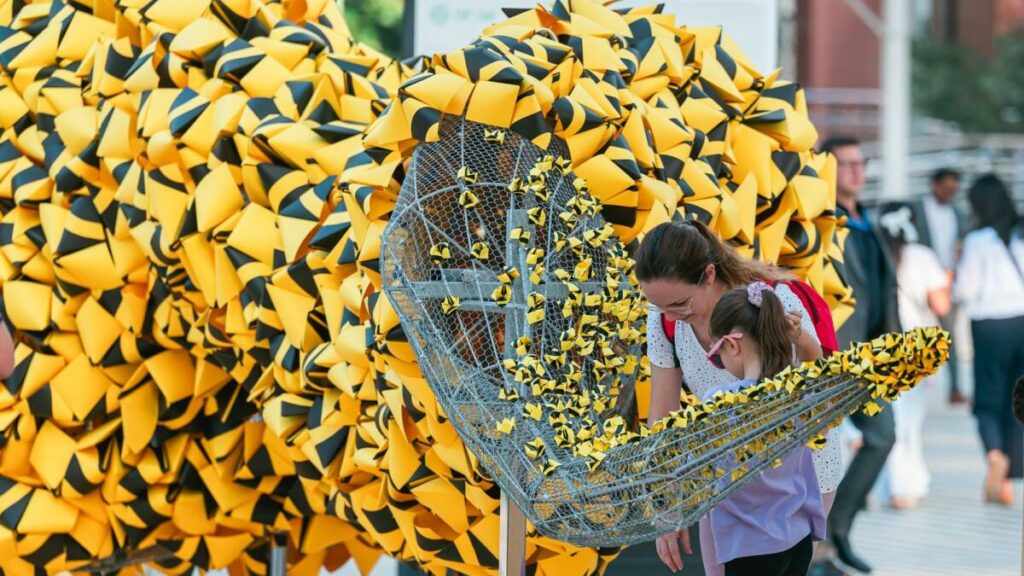Expo City Dubai has taken a pioneering step in safeguarding global biodiversity by unveiling the ‘Bee The Change’ campaign, part of the Trillion Bees coalition. This international movement aims to raise awareness and funds exceeding $1 billion, involving over two billion people in projects dedicated to preserving bees, protecting habitats, and fostering biodiversity.

As a founding member of the Trillion Bees coalition, Expo City Dubai presented ‘Bee The Change’ at the COP28 climate summit’s Terra – The Sustainability Pavilion. The initiative aligns with Expo City’s ongoing commitment to environmental sustainability, emphasizing the crucial role bees play as pollinators in maintaining ecosystems and combating climate change.
Marjan Faraidooni, Chief of Education and Culture at Expo City Dubai, emphasized the shared responsibility to care for the environment. The ‘Bee The Change’ movement brings together individuals, businesses, and organizations to drive positive actions for a vibrant future where pollinators thrive.
Expo City’s contribution includes hosting bee-related events during COP28, such as the SWARM art installation by origami artist Leonie Bradley. The interactive artwork encourages COP28 visitors to pledge to nature, embodying collective action for positive change.
Additionally, a global preview of the ‘Bee The Change’ documentary, directed by award-winning filmmakers Josh and Rebecca Tickell, will be showcased. This emotional and inspirational film explores the essential role bees play, the reasons for their population decline, and how individuals can contribute to regenerating nature and bee populations worldwide.
Visitors to the Green Zone at COP28 can further engage with the ‘Bee The Change’ movement during dedicated sessions at the Terra Auditorium. These sessions, scheduled for December 9 and 10, provide an opportunity to learn more about the Trillion Bees coalition, its mission, and insights from supporting businesses, organizations, and scientists on reversing biodiversity loss and revitalizing pollinator populations.

